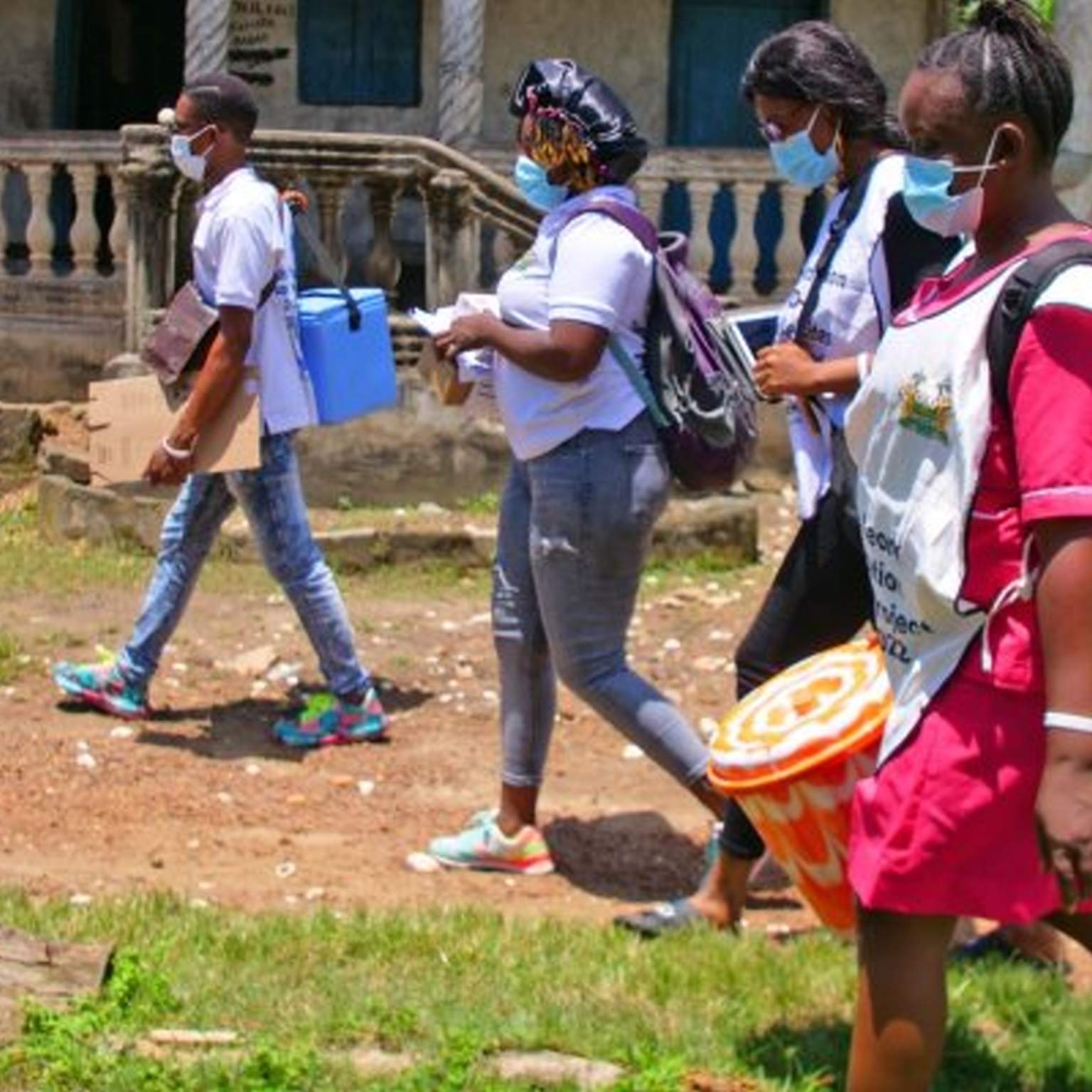“Last mile” solutions increase vaccination coverage in poor countries
The use of mobile clinics to deliver COVID-19 vaccines can significantly increase vaccination uptake. Research by Wageningen University & Research, conducted in rural communities in Sierra Leone and published today in Nature, shows that addressing “last mile” problems such as accessibility has a positive effect on vaccination rates.
The study, titled “Last-mile delivery increases vaccine uptake in Sierra Leone”, was conducted in Sierra Leone in early 2022, a year after the roll-out of the COVID-19 vaccine. At the time, only 6-9% of adults participating in the study had been vaccinated: a very low rate. By comparison, the vaccination rate in the Netherlands was greater than 65% at that time. Sierra Leone, like many other poor countries, has a large number of people living in remote areas. For anyone living in those areas during the pandemic, obtaining a vaccine would have cost several hours and a week’s wages. The researchers therefore worked with the Ministry of Health to see whether it would be helpful to bring mobile clinics to those remote areas, thereby removing those barriers.
Mobile vaccination sites
In partnership with Sierra Leone’s Ministry of Health and the international NGO Concern Worldwide, the researchers conducted a randomised controlled trial with a little over 20,000 people in 150 rural villages just outside the national network of clinics (where vaccines were available). Teams from the ministry brought the vaccines to the remote villages and set up mobile vaccination sites there for two to three days.
A hundred villages were part of the randomised intervention group and 50 were in the control group. Within 48-72 hours, the vaccination coverage in the villages increased by 26 percentage points. Inhabitants of surrounding villages also came to get a vaccine, leading to a seven-fold increase in the number of vaccinated people. The government took on board lessons from this study to improve their campaign in rural areas. In December 2022, the country met the WHO vaccination target of 70%.
....
Read the whole news item here.




